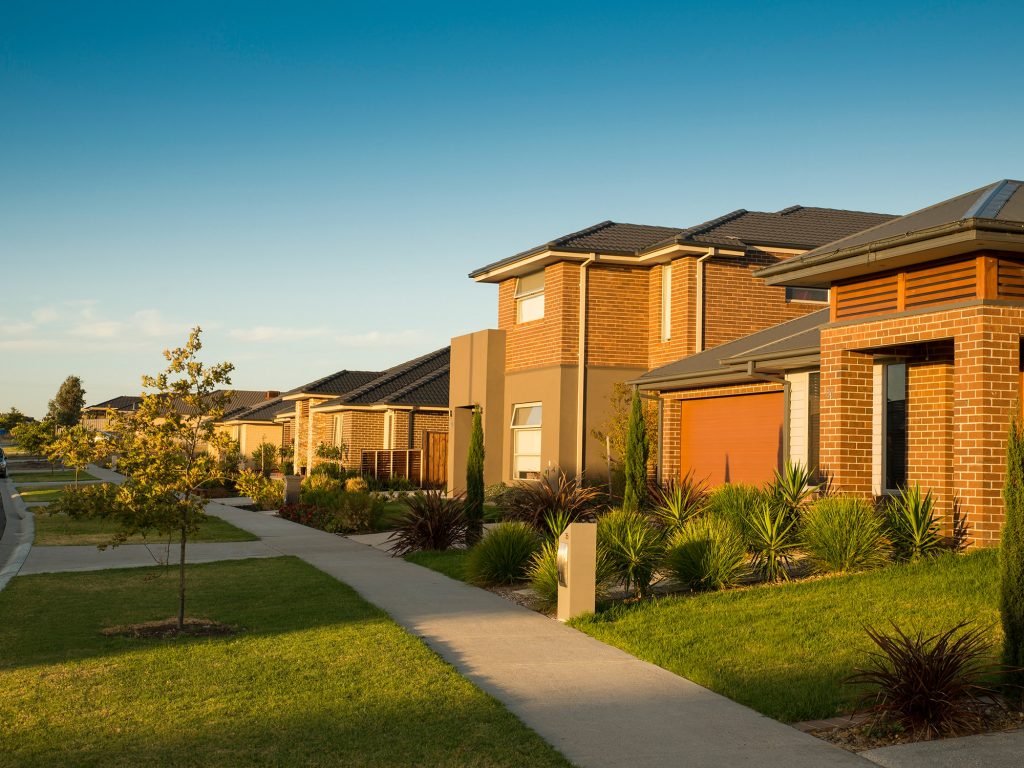Summer is almost upon us, and that means hundreds of thousands of Australians will be heading to holiday destinations across the country for a bit of well deserved R & R.
What it also means, though, is that some of them will inevitably come back having been bitten by the holiday bug, with grand plans of buying their own holiday home.
But does purchasing a holiday home stack up as an investment?

Be cautious when investing in a holiday home. Picture: Getty
Ask most property experts about investing in a holiday home and their response will usually be along the lines of “buyer beware”.
But if you do decide to pursue owning a holiday property, here are some key things to consider if you want it to make money for you.
Be clear about the purpose
The challenge of owning a holiday home is that the times of year that you’ll want to use it are also the prime periods for making good rental income.
If you want to make good money from leasing it out, you’ll probably need to forgo your summer fling and allow it to be booked as a rental throughout those times.
So if you’re buying it in the hope of using it for regular getaways yourself, you’ll need to adjust your expectations regarding how much money you can make.

You’re better off forgoing getaways at your holiday home at peak times if you want to make money. Picture: Getty
Nail the location
Just like with regular residential properties, the best money you’ll make on a holiday home will often be from capital growth – provided you choose the right property.
Just ask anyone who bought a beachside holiday home on Melbourne’s Mornington Peninsula 15-20 years ago.
Why location is key
Buyer’s agent and director of Property Mavens, Miriam Sandkuhler, says “location and the supply and demand factors” are crucial considerations when choosing where to buy a holiday home.
If it’s somewhere that people will want to buy property in general, and not just for holiday homes, that’s a good indication that demand will remain high and drive price growth.
Sankuhler says locations that aren’t reliant purely on seasonal crowds are also a better bet.
“You’ve got to have a look and think, ‘Well what else is in the area that will attract people here during the low months, so we can still make money during that time?’”
“It’s just about having awareness of the location of the property and how you can generate revenue in the off-season, and what will draw people to stay in your property during the off-season.”
Check the zoning
Not all holiday homes are created equal.
Some key tourist areas are designated as exclusively “short stay” zones, which, as the name suggests, means properties within those zones can only ever be used for short stays, and can never be a permanent residence.

Homes located in short stay zones can be an issue when you go to sell. Picture: Getty
Sandkuhler says that while these properties might be appealing because they’re cheaper to buy, the limitations imposed on their use mean you’ll have less buyers when it comes time to sell.
“They’re usually more affordable because they’ve got that limited zoning. But it’s harder to resell down the track, so there’s risk associated with it. The more rigid the zoning, the higher the risk,” she says.
Instead, look for properties that can be bought and used as somebody’s permanent home at some point in the future.
Seek out flexibility
Some homes are designed and built for the express purpose of accommodating people on holiday.
Sandkuhler says these homes appeal from both an owner-occupier and rental point of view, as there are more options for how they can be used.
“I’ve seen purpose-built holiday homes where they’ve built it so that you walk into a central entryway and on the left-hand side there’s two bedrooms, bathroom, kitchen, living and dining, and the whole side is lockable. And then on the right side it’s the same thing: two bedrooms, bathroom, kitchen, and a bigger living and dining area.
“Those properties are able to be rented out half a house at a time, or the whole house can be taken out, or if you’ve got an owner-occupier who wants to have their half of the house and rent out the other half, they can do that too.”

Some homes are designed for the express purpose of accommodating people on holiday. Picture: Getty
Sandkuhler says these types of homes also have greater potential for capital growth, as they’ll be more desirable to more holiday home buyers when it comes time to sell.
“A floorplan or a built-for-purpose property like that will be more valuable from a resale point of view because of that flexibility, and will also give a landlord greater potential to rent it,” she says.
“Even if in the off-peak they’re just renting half of it at a time, it’s better than nothing, and then if someone wants to rent the whole house they can do that, too. That sort of consideration and planning in built-for-purpose homes can be substantially more beneficial than just buying any old house and hoping that everyone will want to rent it from you.”




